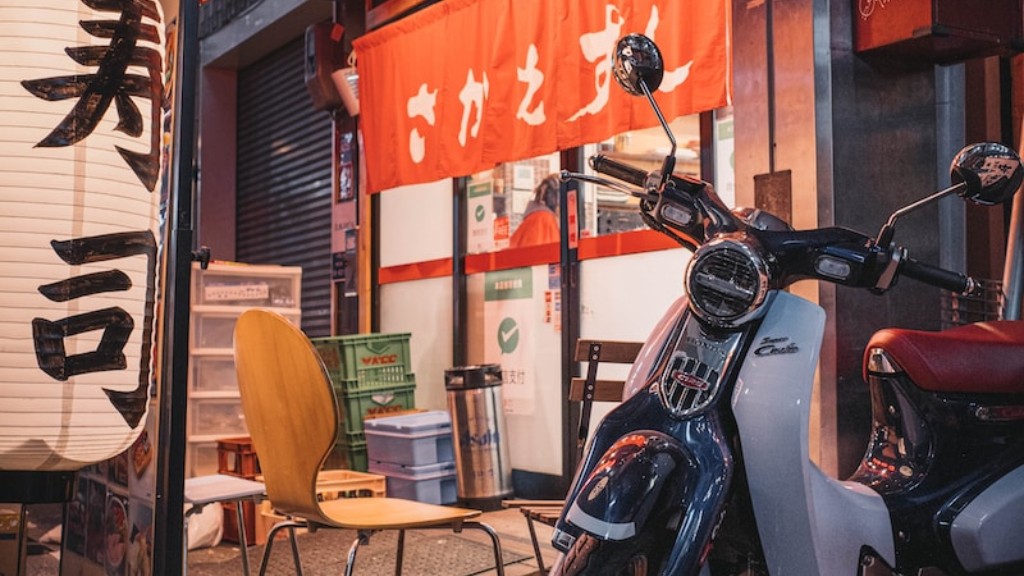Culture
Japan is revered for its vibrant culture, which includes a rich history and a diverse set of practices. It is estimated that nearly thirty-five thousand shrines and temples exist in the country. The ancient architecture traces its roots back to the islands’ Shinto beliefs and Buddhist imprints. Japan is also known for its diverse cuisine, soaking baths, and a range of traditional wear. Moreover, famed for its unique haiku poetry, art forms such as Sumi-e, and its iconic anime, Japan is surely a cultural hub. But no matter where you go in Japan, the country’s spirit reverberates.
Nevertheless, whilst traveling in Japan, please remember to always respect its traditional ways and practice etiquette. Japan is a polite society, so please mind your manners and defer to locals for advice. Additionally, be aware of the nigh-unavoidable language barrier. Of Japan’s 127 million residents, fewer than 1.4% of them speak English. As such, you may want to carry a dictionary or phrasebook can certainly .
Safety
Japan is widely regarded as one of the safest places to visit. There is very little criminal activity, so it’s a place where you can usually rest easy. The streets are incredibly clean, and Tokyo’s train system is immaculately maintained by a tightly knit infrastructure. Furthermore, Japan is the 12th least violent nation on Earth, and it’s the third safest in the G-20.
Although Japan is quite progressive in terms of safety, there are still a few security-related issues to keep in mind. Firstly, pickpocketing is becoming increasingly prevalent. Therefore, carrying backpacks and wallets in front of you can greatly help prevent being scammed. And secondly, certain areas like Roppongi may be seedier at night or on particular days of the week, so avoid these areas when you can.
Accessibility
Japan is a largely accessible destination. Walking trails, trains, and other modes of transportation link each of the country’s twenty-seven prefectures. Taxis are also easily accessible, though somewhat expensive. Moreover, most cities and prefectures sponsor their own bike-sharing plans, which can prove to be quite economical. And if possible, rent a car to explore the outlying countryside.
In terms of accessibility, it’s important to note that not all transportation methods are wheelchair accessible. Due to the prevalence of stairs on the streets and train stations, wheelchair users should plan their trips accordingly. Fortunately, certain cities have mobility-friendly options that provide step-free entrance onto the platforms.
Cost
The costs associated with a vacation to Japan can vary drastically. However, certain trends are commonly observed. On average, a meal can run anywhere from $4-$15 dollar, with higher-end eateries often favoring the pricier end of the spectrum. Nightly lodging should be expected to cost an average of $50-$200 dollars, depending on the type of accommodation. Furthermore, one-way train fares can go for around $2-$13 dollars.
Ultimately, how far your wallet will carry you depends on the type of traveler you are. But in Japan, one can always find ways to cut costs and still make the most of the experience. Even on a shoestring budget, you can find high-quality sushi sets, historic sites, and a host of other attractions for a fraction of the price.
Tourist Hotspots
Japan is a vast country, with a seemingly endless list of attractions. The major cities like Tokyo and Kyoto are home to some of the most captivating sites in the world, such as the Tsukiji Market, Meiji Shrine, and Arashiyama Bamboo Forest. Moreover, there are plenty of hidden gems to explore including Miyajima Island, Mt. Takao, and the Great Buddha of Kamakura.
At the same time, certain traveler-friendly locations exist that are definitely worth checking out. Osaka should be considered a must-visit, especially for its impressive nightlife. Also, if you’re looking for some peace and quiet, the nearby cities of Nara and Hiroshima boast their own quintessentially Japanese allure.
Essential Experiences
Japan is saturated with experiences to try — from bathing in hot springs to attending a traditional tea ceremony. And what’s more, depending on the yearly season, certain events take place across the country. Cherry blossoms bloom come springtime, Kakigori vendors sate the summer heat, and festivals such as Aomori’s Nebuta Matsuri come alive in the fall.
But no matter the time of year, Tokyo’s many nightlife spots are always a worthy treat. There’s a wide variety of hotspots, from intimate clubs to underground havens. And don’t forget the ever-evolving street food scene, from yakitori to karaage. Taking to the streets for some night bites or sake is a worthwhile experience for anyone looking to discover Tokyo’s inner workings.
Climate
In terms of climate, Japan’s weather varies drastically between the four seasons. Sumer months bring humid air and a chance to swim in the sea, while winter months tend to be quite dry and are great for skiing. Additionally, Japanese spring is shallow yet immersive, arranged in a mosaic of cherry blossoms. On the other hand, the autumn brings with it the red and yellow foliage.
Rainfall is said to occur almost every day during the rainy season, which runs from June to mid-July. The country also experiences typhoons from late summer through to early autumn. As such, it’s important to keep an eye on the weather before traveling.
Technology
Japan is widely known for its technology-savvy population, which is only natural in such a technologically advanced nation. The country’s cities are home to all sorts of gadgets and gizmos that can enhance your trip. From facial recognition technology at airports to Wi-Fi enabled trains and cashless restaurants, technology has become tangled into the fabric of everyday life. In such a technologically modern country, the odds are that you’ll find yourself marveling at something new every day.
Furthermore, Japan’s advanced electronic payment system allows you to make payments through a handful of ways — including cashless options such as mobile payment apps and prepaid cards. But even if you’re unable to keep up with the technology trend, foreign exchange kiosks and banks provide alternatives for foreign visitors with cash.




